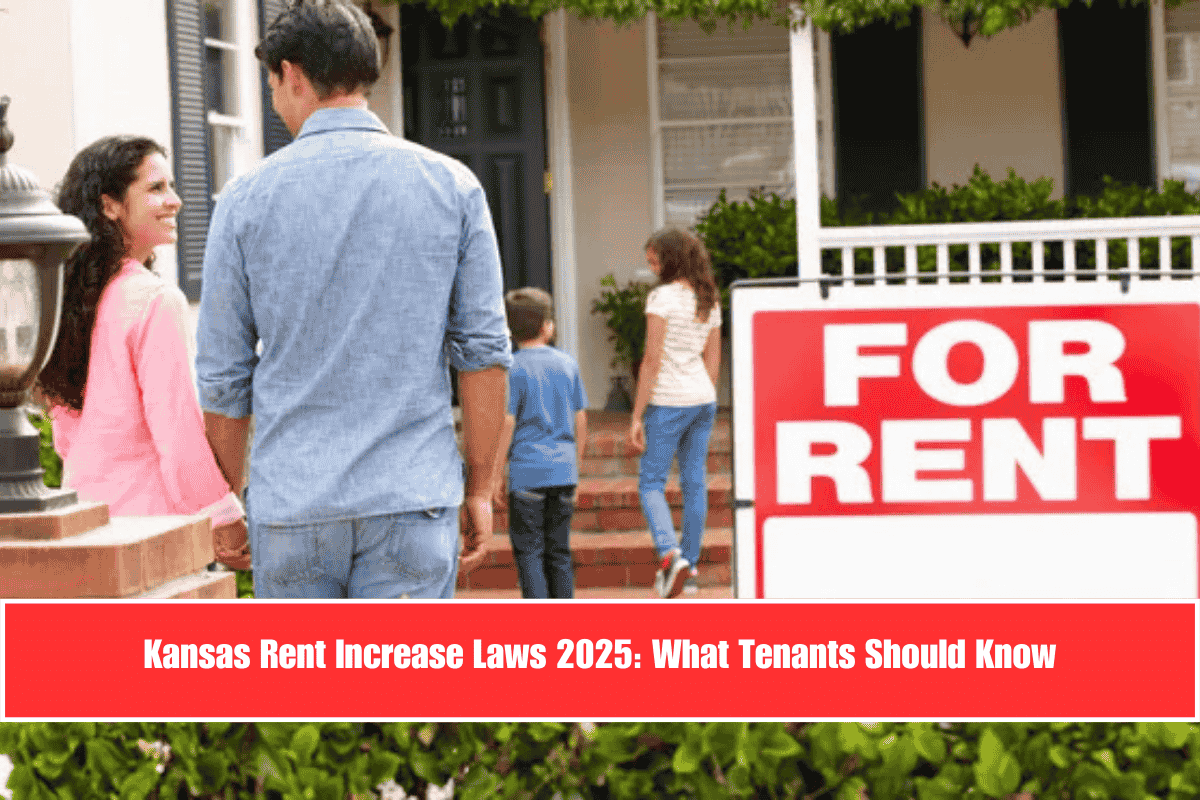Kansas remains a landlord-friendly state in 2025, with no statewide rent control or statutory limits on rent increases. Here’s what tenants need to know about how, when, and by how much their rent can be raised:
No Statewide Rent Control or Caps
- No Maximum Limit: There are no state laws limiting how much a landlord can raise rent in Kansas. Landlords may increase rent by any amount they choose, provided they follow required procedures.
- Market Driven: The main check on rent increases is the local rental market. Excessive hikes may drive tenants to seek more affordable housing, but there is no legal ceiling.
Notice Requirements
- Month-to-Month Leases: Landlords must provide at least 30 days’ written notice before a rent increase takes effect.
- Fixed-Term Leases: Rent cannot be increased during the lease term unless the lease specifically allows for it. Once the lease ends, the landlord can raise the rent for the next term, provided proper notice is given as outlined in the lease.
- Written Notice: Notice must be in writing and should specify the new rent amount and the date it becomes effective. Verbal notice is not sufficient.
Frequency of Rent Increases
- No Limit on Frequency: There is no legal restriction on how often rent can be raised. However, most landlords typically raise rent once per year, often at lease renewal.
- Lease Terms Govern Timing: For fixed-term leases, increases can only occur at the end of the lease unless otherwise stated in the agreement.
Tenant Protections
- Non-Discrimination: Rent increases cannot be used as a form of discrimination based on race, religion, gender, familial status, disability, or other protected classes under the Fair Housing Act.
- No Retaliation: Landlords may not raise rent in retaliation for tenants exercising legal rights, such as requesting repairs or reporting code violations.
- Lease Review: Tenants should carefully review their lease for any clauses about rent increases or notice requirements, as these may provide additional protections or stipulations.
Local Ordinances
- No State Preemption: While Kansas has no statewide rent control, some cities may have local ordinances affecting rent increases. However, such ordinances are rare and most of the state operates without rent caps.
Security Deposits
- Deposit Cap: Security deposits are capped at one month’s rent unless the unit is furnished or pets are allowed, in which case higher deposits may be permitted.
Table: Kansas Rent Increase Laws 2025
| Aspect | Rule/Requirement |
|---|---|
| Statewide Rent Control | None |
| Maximum Rent Increase | No limit |
| Notice for Month-to-Month | 30 days’ written notice |
| Notice for Fixed-Term | As specified in lease; typically at lease end |
| Frequency of Increases | No legal limit; usually once per year |
| Discrimination/Retaliation | Prohibited |
| Security Deposit | Capped at one month’s rent (exceptions for furnished/pet units) |
| Local Ordinances | Rare, but possible |
Kansas law gives landlords broad discretion to raise rents, but they must provide proper written notice and cannot act in a discriminatory or retaliatory manner. Tenants should review their lease agreements closely, stay informed of their rights, and be aware of market conditions to prepare for potential rent increases.
Sources
[1] https://www.hemlane.com/resources/kansas-rent-control-laws/
[2] https://www.steadily.com/blog/how-much-can-a-landlord-raise-rent-in-kansas
[3] https://www.steadily.com/blog/mid-term-rental-laws-regulations-kansas
[4] https://www.doorloop.com/blog/how-much-can-a-landlord-raise-rent
[5] https://www.hemlane.com/resources/kansas-tenant-landlord-law/
















Leave a Reply